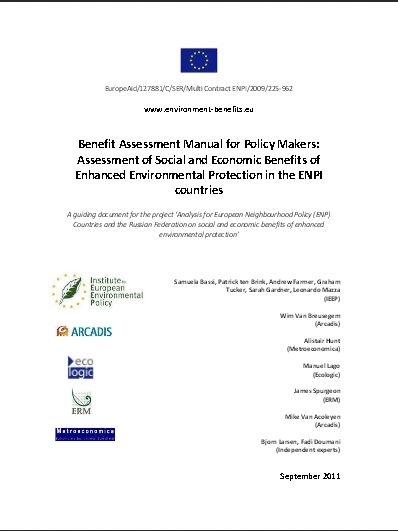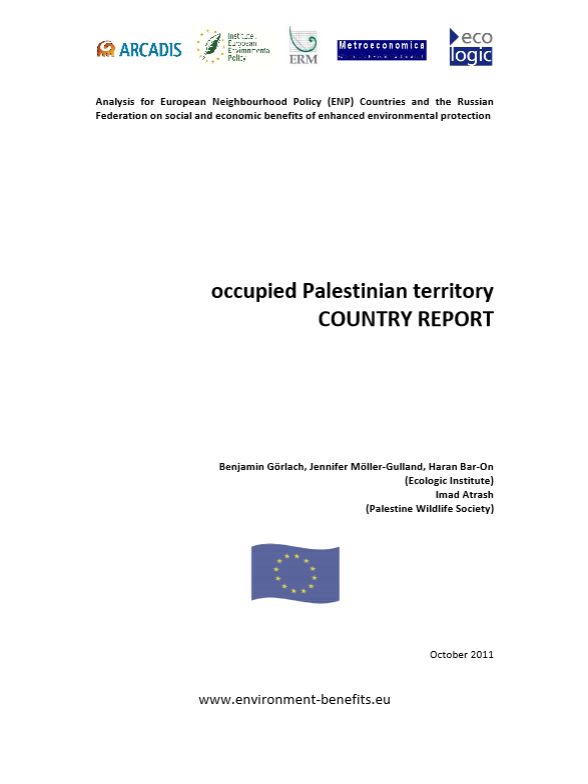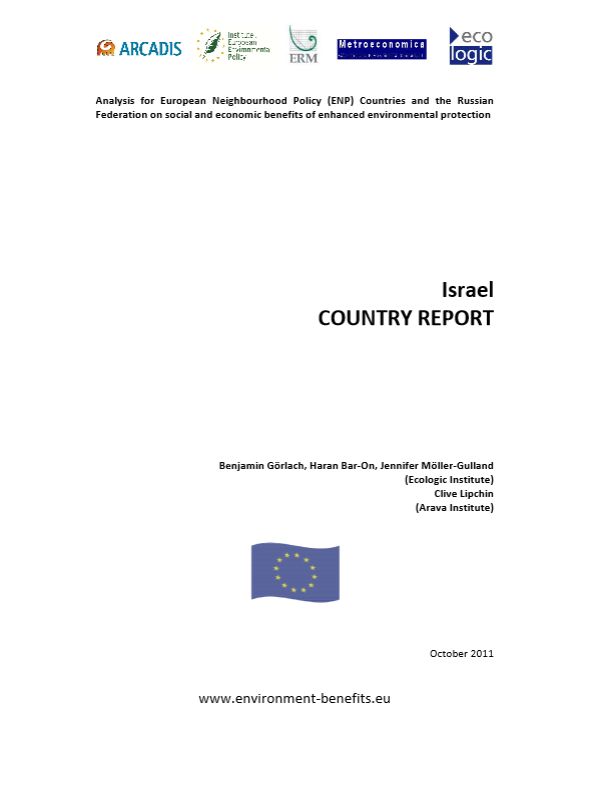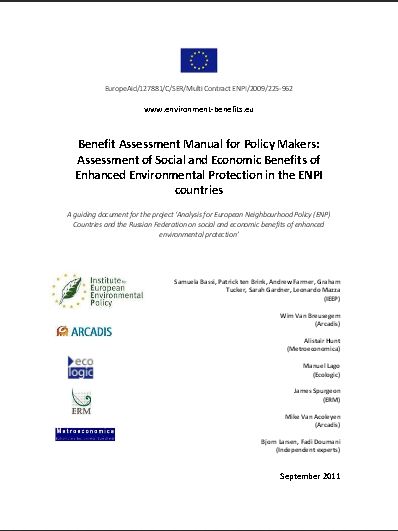Enhanced environmental protection in European Neighbourhood Policy (ENP) countries would have positive impacts. In a project for the European Commission, Ecologic Institute analyzed the social and economic benefits of enhanced environmental protection in ENP countries. The results are available for download now.
Objective and Purpose of the Project
The project’s purpose is to improve the capacity of European Neighbourhood Policy (ENP) countries and the Russian Federation countries to develop strategies and to prioritise convergence of their environmental policies and legislation with those of the EU under the ENP Action Plans and the EU-Russia Common Economic Space road-map. The overall objective of the project is to increase the importance of the environment on the agenda of these governments and improve their awareness on social and economic benefits of environmental improvements by analysing these benefits for each specific country.
The project covered the Eastern Neighbourhood (Armenia, Azerbaijan, Belarus, Georgia, Moldova, and Ukraine) and the Russian Federation and the Southern Neighbourhood (Egypt, Israel, Jordan, Lebanon, Morocco, Syria, the occupied Palestinian territories and Tunisia). The benefit assessments cover a broad range of parameters organized around five central themes: air, waste, water, nature and biodiversity, as well as climate change as a cross-cutting theme.
Two regional summary reports (ENPI South and East) as well as 16 country reports, with an executive summary in the different national languages, document the project’s findings. In addition, a Benefit Assessment Manual, which was developed and road-tested in this project, is intended to support policy makers who wish to conduct their own tailored benefit assessments.
Ecologic Institute contributed the country studies for Israel [pdf, 2.2 MB, English] and the occupied Palestinian Territories [pdf, 2.1 MB, English], it conducted the centralized benefit assessment for freshwater quality across all 16 countries, and it had a significant role in the development of the Benefit Assessment Manual [pdf, 1.9 MB, Englisch]. All project reports, including those for the remaining ENP countries, can be downloaded from the project website.
Some key results
The study found that achievement of the selected targets for six key air pollutants could save between 50,000 and 150,000 lives per year due to reduced air pollution alone, the project concludes.
In the water sector, positive effects of enhanced environment protection and service provision would also be significant. Improved drinking water quality, household sewage connection, and improved hygiene practices could lead to benefits of 9 to 21 billion Euros per year in the EU neighbourhood countries and Russia, due to decreased morbidity and mortality of the populations.
In the waste sector, the achievement of selected targets would lead to an additional 64 million people being covered by proper municipal waste collection. And around 10 billion m3 of methane, a powerful greenhouse gas, could potentially be captured from improved landfills. An additional 25,000 jobs would be created in this sector.
Increasing the renewable energy share of the energy mix also offers a major opportunity for reducing greenhouse gas emissions as well as creating employment. Moving to a 20% renewable share of the energy mix by 2020, could lead to around 450 million tons less of CO2 being emitted per year, with a value between 17 to 25 billion Euros per year from 2020.
Forests are critically important storage of carbon – storing around 34 billion tons of carbon, equal to 125 billion tons of CO2. Deforestation and the degradation of forests risks releasing emissions as well as losing a range of forest ecosystem services such as water purification and supply, flood control and provision of forest products.
Committing to the target of increasing terrestrial protected areas to 17% of territory and marine protected areas to 10%, will be also be important in maintaining and increasing ecosystem services that are a foundation for our economies and societies and helping in the adaptation to climate change, by improving ecosystem resilience.
Agriculture, providing 20-50% of employment in half of the European Neighbourhood countries, suffers from extensive land degradation in most of the countries. Improved crop land quality alone, from better land management and agricultural practices, could provide benefits of 13 to 25 billion Euros per year by 2020 if half of yield losses from land degradation are reversed.
The results of the study suggest that there are important opportunities for a transition to a green economy, that would create more social well-being, including better health, and more jobs and economic progress, while at the same time reducing environmental risks, such as the effects of air pollution, inappropriate waste management, greater water scarcity, the loss of eco-services, and climate change.
logic Institute contributed the country studies for and the , it conducted the centralized benefit assessment for freshwater quality across all 16 countries, and it had a significant role in the development of the. All project reports, including those for the remaining ENP countries, can be downloaded from the project website.
Downloads
- Project Information Sheet [pdf, 164 KB, English]
- Country Report Israel [pdf, 2.2 MB, English]
- Country Report Occupied Palestinian Territories [pdf, 2.1 MB, English]
- Benefit Assessment Manual [pdf, 1.9 MB, Englisch]







